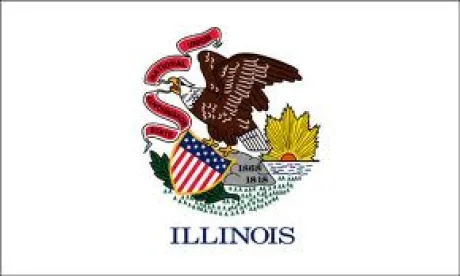The Public Safety Employee Benefits Act (the Act), 820 ILCS 320 et seq., was designed to provide certain benefits to law enforcement personnel, their spouses, and children when employees are killed or catastrophically injured. The Act, however, leaves many questions unanswered. For example, the Act does not define "catastrophic injury." In addition, the Act does not provide guidance on the proper procedure for seeking benefits under Section 10. In recent years, a number of courts attempted to define "catastrophic injury" and clarify what triggers the requirement to pay health benefits.
Under the Act, full-time law enforcement, correctional officers, probation officers, firefighters, and their families are covered by the Act. 820 ILCS 320/10(a). In order to be eligible for benefits, the employee must suffer a catastrophic injury or be killed in the line of duty. The catastrophic injury or death must have occurred as the result of the officer's response to fresh pursuit, the officer or firefighter's response to what is reasonably believed to be an emergency, an unlawful act perpetrated by another, or during the investigation of a criminal act. If the employee suffered a catastrophic injury or was killed in the line of duty, the employer must pay the entire premium of the health insurance plan for the injured employee, the employee's spouse, and for each dependent child.
This article discusses several Illinois cases interpreting the Act and provides guidance for governmental employers and workers' compensation insurers.
Krohe v. City of Bloomington
The Supreme Court of Illinois addressed the definition of a "catastrophic injury" in Krohe v. City of Bloomington, 204 Ill. 2d 392 (2003). In this case, a firefighter (Krohe) sustained injuries that caused him to be permanently disabled. He received a line-of-duty disability pension pursuant to 40 ILCS 5/4-110.
Krohe filed a complaint against the City of Bloomington and argued the City was required pay health insurance premiums for him and his family. The City argued it would not pay for health insurance because Krohe's injuries did not rise to the level of "catastrophic." Krohe argued the phrase "catastrophic injury" was ambiguous and the court needed to look to the Act's legislative history to decipher its meaning.
The court held it was the legislature's intent that an injured employee and his or her family would receive health insurance benefits if the employee became disabled after being injured in the line of duty and received line-of-duty disability benefits. In other words, the court held a "catastrophic injury" was synonymous with an injury resulting in a line-of-duty pension.
Village of Vernon Hills v. Heelan
Although the holding in Krohe has been followed in subsequent decisions, the Village of Vernon Hills attempted to challenge an award of health benefits to an officer who was awarded a line-of-duty disability pension by asserting the officer had not suffered a catastrophic injury. In Village of Vernon Hills v. Heelan, 2014 IL App (2d) 130823, the Village attempted to assert Krohe was factually distinguishable. During the course of its appeal, the Village also made it clear on the record that it believed the ruling in Krohe was incorrect, that it was seeking to modify existing law, and that the legislative intent behind the Act was misinterpreted.
In the Village of Vernon Hills case,Officer Heelan responded to an alarm and observed an unknown person exiting a building. Heelan slipped on ice, fell onto a curb, and sustained a right hip injury. The medical evidence and testimony showed the incident aggravated an asymptomatic pre-existing osteoarthritic condition, which resulted in a right and left hip replacement. The medical examiners determined Heelan was disabled and could not perform his duties as a police officer.
After a hearing and consideration of the medical evidence, the Board determined Heelan qualified for a line-of-duty disability pension. In addition, Heelan sought payment of health insurance benefits. The Village filed a complaint seeking a declaratory judgment that Heelan was not eligible for health insurance benefits under the Act because he had not suffered a catastrophic injury pursuant to Section 10(a) of the Act. The trial court ruled in Heelan's favor, and the Village appealed.
At the appellate level, the Village argued Krohe and subsequent cases were not controlling because those decisions did not address whether a municipality is prohibited from conducting discovery and presenting evidence to dispute the extent of the injury. The court disagreed with the Village and held the interpretation of "catastrophic injury" in Krohe was correct. The court stated if an officer or firefighter was awarded a line-of-duty disability pension, Section 10(a) was satisfied and there was no need for discovery or medical evidence regarding the injury. As a result, the nature and extent of Heelan's injuries were not relevant.
Richter v. Village of Oak Brook
In support of its decision in Village of Vernon Hills, the appellate court cited to its holding and analysis inRichter v. Village of Oak Brook, 2011 IL App (2d) 100114. In Richter, a firefighter (Richter) filed several workers' compensation claims involving various injuries and conditions, which were resolved by lump sum settlement agreements. Richter developed diesel-induced rhinitis from breathing diesel fumes in the firehouse and could not return to work in an environment where airborne irritants could exacerbate his symptoms. Richter also injured his shoulders, neck, and back. The shoulder injuries occurred during a response to a fire.
Although the initial shoulder injuries may have healed, Richter reinjured his shoulders by pulling out a drawer during a training exercise. He underwent surgery to each shoulder and could not return to his regular duties as a firefighter.
Unlike Heelan, Richter had been awarded a line-of-duty disability pension prior to his workers' compensation settlement. The Village of Oak Brook argued Richter's disabling injury was not the result of an emergency call or response because Richter re-aggravated his previous shoulder injury in non-emergency related work activities. In finding in favor of Richter, the court stated Richter could recover under the Act as long as the injury sustained during an emergency response was a contributing cause of the disability.
Nowak v. City of Country Club Hills
In Nowak v. City of Country Club Hills, 2011 IL 111838, the Supreme Court of Illinois affirmed its holding and interpretation of a "catastrophic injury." The City became statutorily obligated to pay the health insurance premium for a police officer, who suffered a catastrophic injury in the line of duty.
The court held the City should begin to pay the health insurance premium on the date the officer was deemed permanently disabled, rather than the date when the officer sustained the actual injury. If an individual is forced to take a line-of-duty disability due to injuries, his or her employment continues until the date the line-of-duty disability pension is awarded. Until that point, the employee is still employed and receiving work benefits.
This court's decision overturned an appellate court ruling that imposed the obligation as of the date of the injury. The court again revisited and analyzed the legislative intent of the Act and found the legislators intended anyone who was catastrophically injured in the line of duty to have continued benefits.
Conclusion
Courts continue to follow the holding in Krohe and the subsequent cases addressing the issue. An award of a line-of-duty disability pension satisfies Section 10(a), and the employee is found to have sustained a catastrophic injury.
In the event of a workers' compensation settlement where there are multiple injuries or accidents, and there is any dispute as to the nature, extent, or cause of any one of the injuries or accidents, careful consideration should be made to determine if any injury or accident should be excluded and handled separately.
Inclusion of all emergency and non-emergency injuries and accidents without distinction could result in the award of a line-of-duty disability pension and trigger the employer's obligation to pay the health insurance benefits for the injured employee and his or her family.





 />i
/>i
